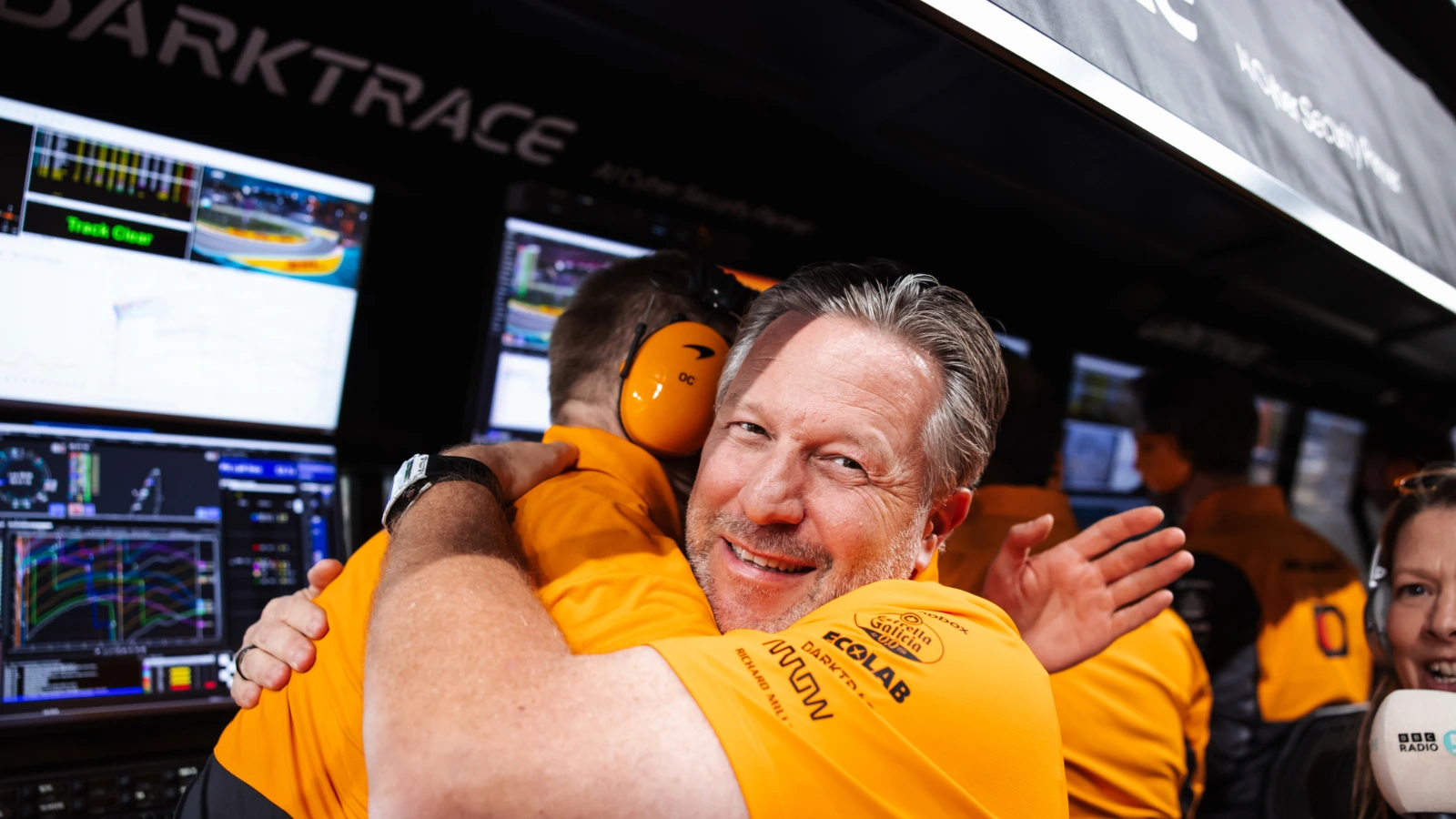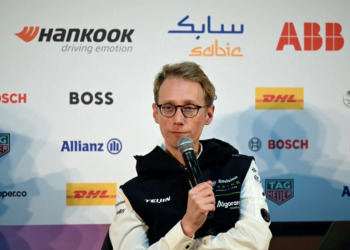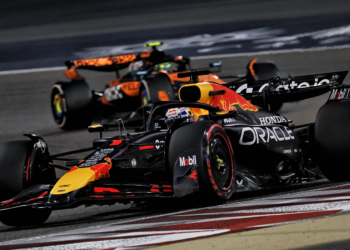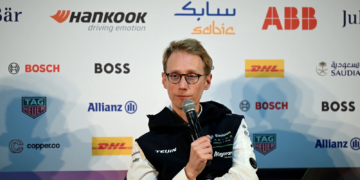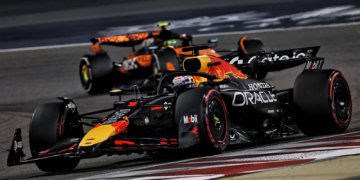McLaren CEO Zak Brown has revealed that the prestigious Formula 1 team had a “toxic” atmosphere upon his arrival in 2016.
The American’s tenure at Woking has seen quite the turnaround, helping to turn it from a once-great team seen as no-hopers to Constructors’ Champions last year, and as one of the favourites for glory again this year.
Initially joining as an executive director, Brown was moved to CEO two years later and helped overhaul its struggles, as well as helping to steer it from potential closure in 2020 amid the Covid pandemic.
Speaking on the James Allen On F1 podcast, Brown revealed the state of affairs at McLaren was beyond what he had already anticipated.
“It was a lot worse than I thought,” he said. “I came in knowing that things weren’t in great shape. You could see the [lack of] brands on the car, you could see the results.
“But once I arrived, I realised it was really bad and I had never run a Formula 1 team before. I’d been around Formula 1 my whole life.
“I was used to an organisation of that size – we had about 1,200, 1,300 people in the [PR] agency I came from – so the size wasn’t an issue, but the departments and the skillsets were definitely mostly out of my area of expertise.
“I went about first tackling the commercial side, because that’s where I was most comfortable, and we needed a lot of resources, so I knew that would be the biggest contribution I could make in the short term.
“I changed the majority of the leadership team, but one at a time [as] I got to know everyone and took a while to turn it around.
“It was pretty toxic on the shop floor as far as the politics and, as Andrea [Stella, team principal] calls it, poison biscuits. There were lots of poison biscuits being passed around.
“At the time. I think we were all convinced the problem was the [Honda] power unit.
“And while that was certainly a big contributor, that was not exclusively the issue and that became very clear once we changed [to a Renault customer engine in 2018] and the results got a little bit better.
“But we knew we had fundamental problems, so it was quite a daunting task to tackle but we got there in the end.”
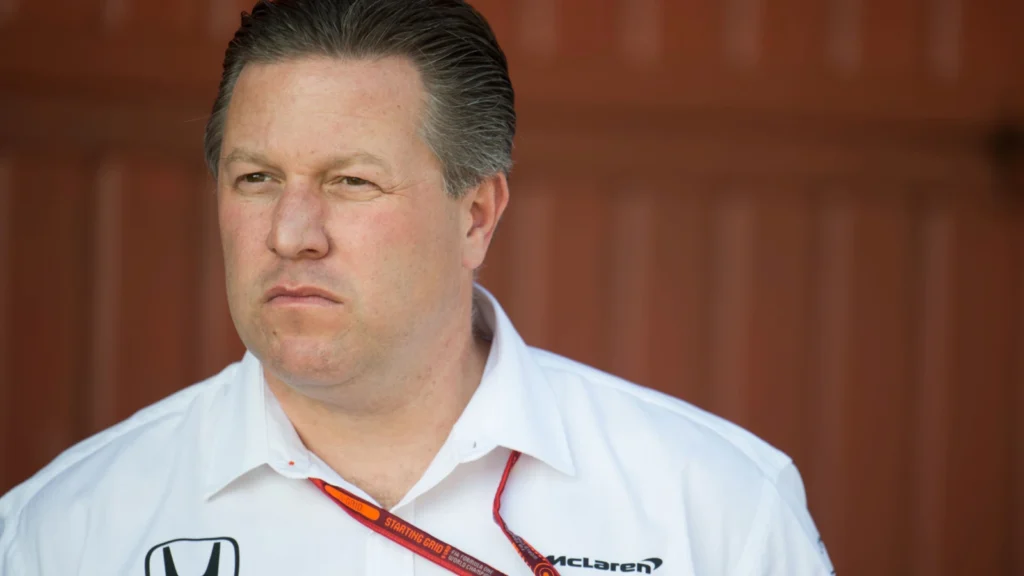
‘Taking all the politics’ out of McLaren a notable change
As well as overhauling McLaren’s commercial situation, Brown also tweaked the culture within, after a particular incident when he was informed by members of its gearbox department that staff were talking negatively about him.
“I think middle and upper management, as opposed to top management, are critical,” he said.
“We have about 1,300 people in all at McLaren Racing, about 1,000 of those on Formula 1, so the people that have the biggest influence with the largest group of people is that next layer of management that probably we touch 600 people in the organisation.
“It’s easy to put on a PowerPoint [and say] here’s what we want to be, you’ve got to walk the talk, but then you need to make sure that permeates through the entire organisation.
“I think we have been extremely transparent with our team, taking all the politics out of the team.
“I had an open door policy in the early days and I remember three guys from the gearbox [department] came in to see me and said: ‘We’re really concerned for you.’
“I was like: ‘Why is that?’
“I won’t name names, but they saw three people talking and [told me]: ‘It’s not good, we think it’s about you.’
“I was like: ‘Well, what did you hear?’
“‘Nothing, but we think it was bad.’
“This was the kind of conspiracy theories we’d have on the shop floor. It was the ghosts that people were seeing and the conspiracy theories on the shop floor.
“So we got that out of the system and very transparent, definitely a no-blame culture.”
‘No-blame culture’ key to newfound return to success
The no-blame culture, according to Brown, was crucial in seeing McLaren rise back to the top of the F1 tree, with Lando Norris and Oscar Piastri taking six wins between them to edge out Ferrari in the Constructors’ battle.
“It’s so easy in the sport [and] it’s very frustrating that if you make a mistake – driver makes a mistake, strategy, tyre, mechanical – to get angry at that person and that’s very unhealthy.
“You win and lose together, it’s a team effort, so I think it’s been very healthy for the team that the last few races were really difficult for us.
“Qatar was obviously difficult for us; Brazil didn’t go our way; Vegas, we weren’t competitive.
“So right as everyone thought we probably had this thing wrapped up, we had 14 podiums in a row, and then three bad races leading into the last race.
“To have the team respond with a two-second pit stop when it counted in Abu Dhabi, I think, was the great resilience from the team.
“I think we’re going to be strong this year.”
READ MORE – Who stands in Lando Norris’ way for F1 2025 title glory?

